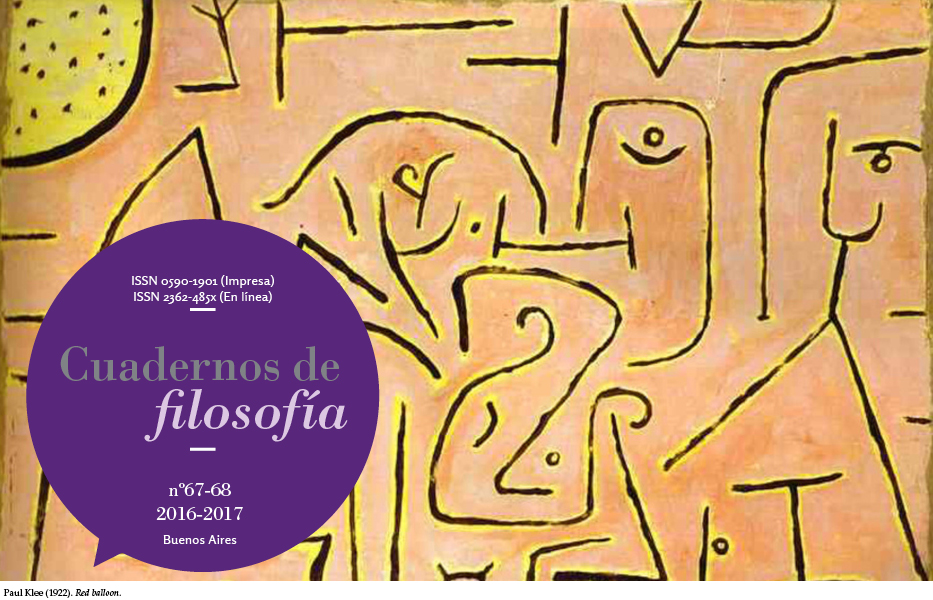El sistema de las necesidades y la sociedad civil
Abstract
The juridical model which appeals to the fiction of a social contract for the constitution of society and state is replaced in Hegel’s philosophy by two different and complementary points of view: a) the economic model of the system of needs, which is ruled by its own law, immanent to the very thing of this sphere, and which will produce a real integration in civil society that is at the same time more solid and dynamic than the one achieved by traditional pre-modern communities; b) the substantive political integration of the objective spirit, which enables to regulate the imbalances and injustices of civil society through a moderately interventionist policy of the State. Civil society is not reduced to the system of competitiveness, for it is also the container and weave of solidarity, charity, the corporative cooperation of arts and trades, non-state public institutions for control and administration of justice, public activities related to knowledge and culture, the formation of public opinion, and the activity of the universal class, which, with the exception of the political class, must be independent from the State and which final end is the universal itself, the formation of the other classes -in particular the political and civil servants’ class-, the critical judgment and the contribution to the constitutional organization of the State.Downloads
Los autores/as que publiquen en esta revista aceptan las siguientes condiciones:
Los/as autores/as [traductores/as] conservan los derechos de autor/a y ceden a la revista el derecho de la primera publicación, con el trabajo registrado con Licencia Creative Commons Atribución-NoComercial-CompartirIgual 4.0 Internacional, que permite a terceros utilizar lo publicado siempre que mencionen la autoría del trabajo y a la primera publicación en esta revista.
Los/as autores/as pueden realizar otros acuerdos contractuales independientes y adicionales para la distribución no exclusiva de la versión del artículo publicado en esta revista (p. ej., incluirlo en un repositorio institucional o publicarlo en un libro) siempre que indiquen claramente que el trabajo se publicó por primera vez en esta revista.
Se permite y recomienda a los/as autores/as a publicar su trabajo en Internet (por ejemplo en páginas institucionales o personales).
Políticas de detección de plagio
La colaboración de los y las editores/as, autores/as y evaluadores/as de esta revista y la guía de ética de los procesos editoriales se rige por los Principios de transparencia y buena práctica en publicaciones académicas del Committee on Publication Ethics (COPE) disponible aquí.
Todos los artículos enviados a esta publicación serán supervisados mediante una búsqueda online.







